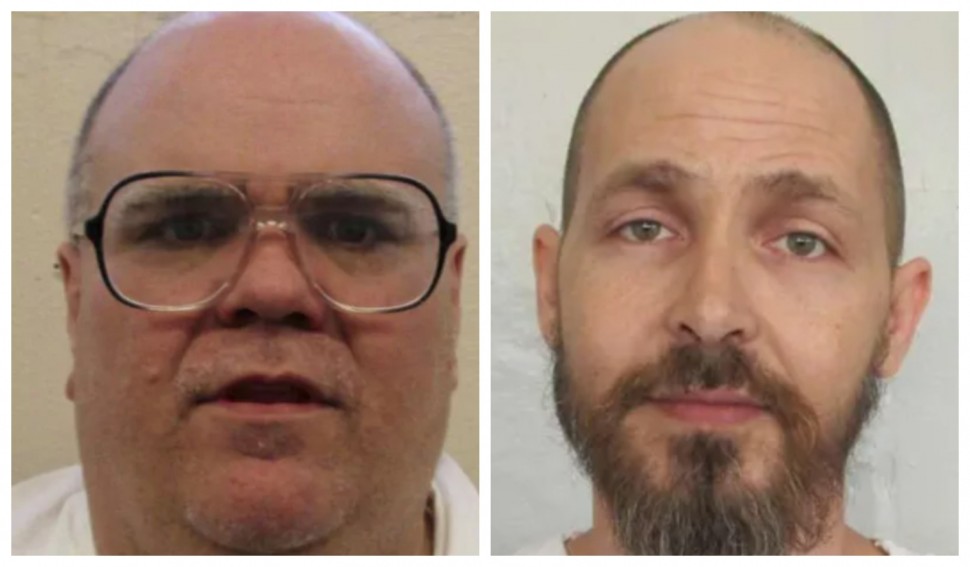
Alabama is set to execute two death row inmates this fall, following the execution of three inmates earlier this year.
Alan Eugene Miller, 59, is scheduled for execution on September 26, while Carey Dale Grayson, 49, is slated for November 21.
Both executions are planned to be carried out using nitrogen gas, which is a method that was only recently approved by the state.
Alan Eugene Miller:
Miller, 59, was sentenced to death for the 1999 murders of Lee Holdbrooks, Scott Yancy, and Terry Jarvis, all of whom were his coworkers at a delivery company.
Miller was found guilty of capital murder in 2000 for the 1999 killings of Lee Michael Holdbrooks, Christopher S. Yancy, and Terry Lee Jarvis, whom he suspected of spreading rumors about him at work.
His attorneys argued that he suffers from a mental illness, which they claimed contributed to the shooting of the victims, according to the Alabama Reflector.
His case has faced several delays due to legal challenges surrounding Alabama's lethal injection protocol.
After a failed attempt to execute him by lethal injection in 2022 due to difficulties locating an IV line, the state of Alabama ruled that any further execution attempt would be conducted using nitrogen hypoxia, which would make Miller the second nitrogen hypoxia execution in the state.
What is Nitrogen Hypoxia?
Nitrogen hypoxia is a controversial death penalty alternative that replaces oxygen with nitrogen to induce death by asphyxiation and continues to be the subject of legal challenges and debates about its humaneness.
Nitrogen hypoxia garnered national attention when Alabama used the method to carry out the death sentence of murderer Kenneth Eugene Smith, becoming the first state in the United States to exercise the procedure. Nitrogen hypoxia is a colorless and odorless gas, and when implemented on an inmate, the inmate only breathes the nitrogen in, leading to oxygen deprivation and a state of rapid unconsciousness before death.
Carey Dale Grayson:
In 1994, Grayson and three other teens abducted, tortured, and murdered 37-year-old Vickie Deblieux who was hitchhiking from Tennessee to her mother's home in Louisiana.
Grayson, 49, along with Kenny Loggins and Trace Duncan, received the death penalty following their convictions. However, Loggins and Duncan later had their sentences commuted to life imprisonment without parole due to a 2005 U.S. Supreme Court ruling that prohibited the death penalty for individuals under 18 at the time of their crime. The fourth teenager, Louis Christopher Mangione, was also sentenced to life without parole. Grayson's death sentence remained in effect because he was 19 when the crime was committed, according to CBS News.
Grayson's numerous legal appeals have also been riddled with arguments over the years.
In particular, his legal team sought to block the use of Nitrogen hypoxia as "cruel and unusual punishment".
"Following Kenneth Smith's execution by nitrogen hypoxia-the first in history-and which, by nearly all accounts, was cruel and unusual, Alabama is doubling down by setting execution dates using the same protocol," Grayson's attorneys wrote in the latest court filing. "Rather than investigating what went wrong-as other states have done following issues with executions-Defendants have chosen to ignore clear and obvious signs the current Protocol contains major problems that will result in more unconstitutionally torturous executions if it continues to be employed."
Grayson consistently maintains that he received inadequate legal representation and that there were multiple procedural errors during the trial.
His defense team continues to raise concerns over his prison conditions and planned method of execution.




